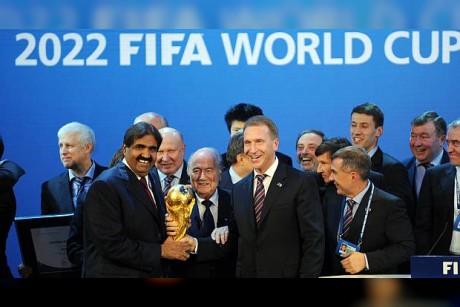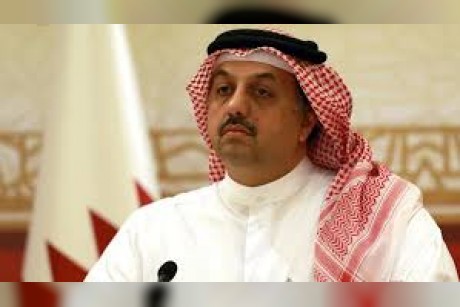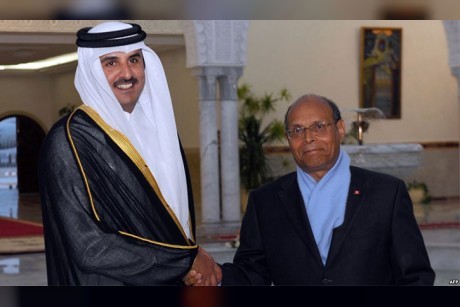In his opinion piece on The New York Times, Ghanem Nuseibeh, founder of Cornerstone Global Associates, calls on Qatar to “answer questions about corruption allegations and address issues of anti-Semitism and extremism” before hosting the soccer games.
When Qatar was awarded the right in 2010 to host the World Cup, it was assumed it would usher in a period of bridge building, peace, prosperity and moderation in the Middle East. It turned out that it was anything but in the interests of the region. FIFA, which has been marred with accusations of corruption, found itself being used as a vehicle to advance the political agenda of Qatar.
Qatar is using the tournament to whitewash its image of being a host to Islamist extremists. Yet it continues to host such Islamists as Yusuf al-Qaradawi, who is barred from the United States and Britain. He has openly endorsed suicide attacks against Israelis (later reversing himself) and continues to be an ideological inspiration for Qatar’s regime. What Qatar laws and ethics dictate are in total contradiction to the FIFA Code of Ethics.
When FIFA decided to investigate allegations of corruption related to Qatar 2022, hopes were high that it would no longer tolerate corruption. Allegations of corruption that surfaced again in 2018 would tend to indicate that FIFA did an incomplete job.
Trust in global soccer as a bridge to peace and accountability is at stake. Before Qatar is allowed to host FIFA World Cup 2022, it must first answer questions about corruption allegations and address issues of anti-Semitism and extremism.
If 2022 comes and Qatar does indeed host the World Cup without changing, the message the world is giving to Muslim and Arab youth is that extremism is acceptable. Qatar should also not be allowed to hide behind the current Gulf crises to avoid answering questions related to FIFA World Cup 2022.



